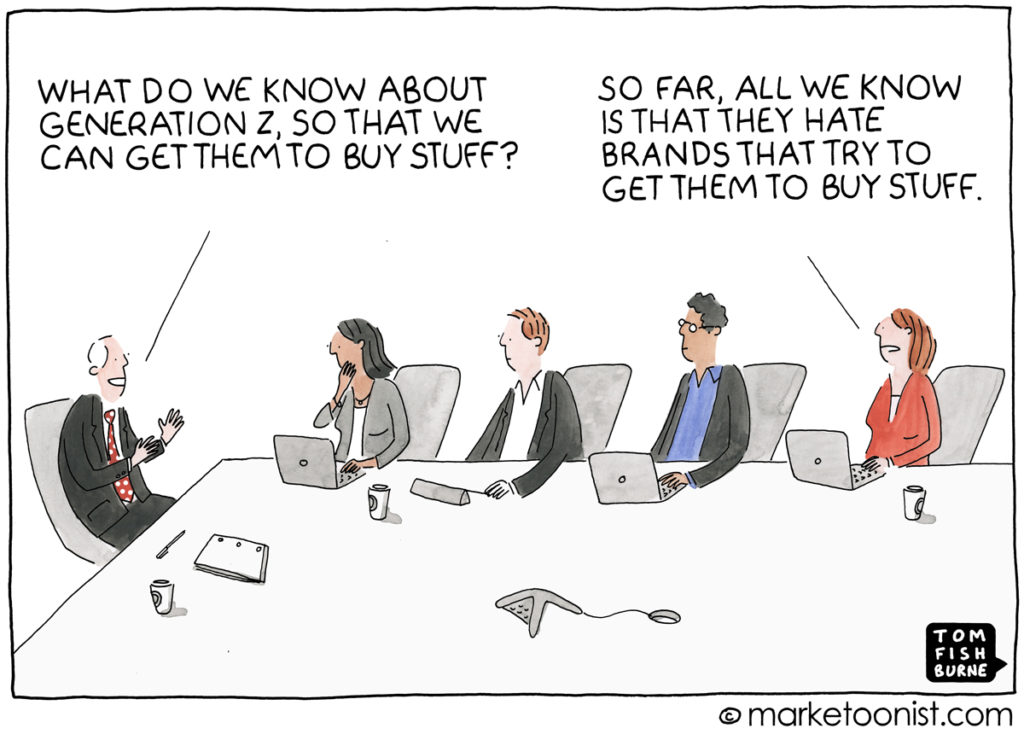 In just two short years, they will represent 40% of all U.S. consumers, and number close to 73 million strong. Nope, they aren’t Millenials, they are Generation Z, sometimes called Millenials 2.0. And for brands that are willing and able to speak their language, the rewards will be huge.
In just two short years, they will represent 40% of all U.S. consumers, and number close to 73 million strong. Nope, they aren’t Millenials, they are Generation Z, sometimes called Millenials 2.0. And for brands that are willing and able to speak their language, the rewards will be huge.
The key, of course, is to understand how they operate and adapt our marketing strategies. To that end, MNI Targeted Media, a division of Meredith Corp., commissioned research on 2,500 students to learn more about Generation Z, those born between 1995 and 2012.
According to Greg Dool in Folio:, the preliminary results are eye-opening. He points out some key facts:
- 60 percent prefer to shop in stores over online, but 75 percent use their phones while shopping to price check or seek recommendations.
- Knowing that a brand is “socially conscious” influences their purchasing decisions.
- The average Gen Z-er spends one hour each week reading magazines.
- 61 percent believe their generation would benefit from “unplugging more.”
“Gen Z may not distinguish between online and offline channels like other generations, but they do know there’s a difference between reading on-screen versus a printed page, and they pay attention longer when reading print,” the report notes, saying that “Gen Z-ers spend more time reading physical newspapers and magazines without interruption than they do on social media, websites, and blogs.”
To tap into this market effectively, brands must be willing to shift their thinking about branding and marketing. They must hold themselves to the same high standards that Gen Z insists on. Articulate a clear point of view that remains consistent across circumstance and platforms; define your unique and authentic brand voice; be willing to take a stand when it comes to the complex and often controversial issues we face today.
Beyond that, we must be willing to communicate in the channels that Gen Z is using. We can no longer assume that these digital natives prefer digital over print. They are coming of age during a time of increased skepticism about social media and its role in fake news. They are speaking out, talking back to an establishment that has habitually ignored younger voices. They are insisting on being taken seriously … and brands that can earn their trust will earn their loyalty.
Download the report and share it with your marketing team. It could be the most important thing you do for your business today.

November 19, 2019, 8:00 am
November 20, 2019, 1:39 pm
April 6, 2020, 5:21 pm
April 7, 2020, 4:55 am
April 15, 2020, 8:57 am
May 18, 2020, 5:08 pm
May 26, 2020, 2:48 pm